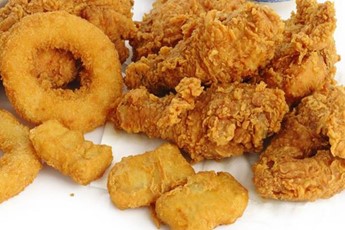The foods you can and can't freeze
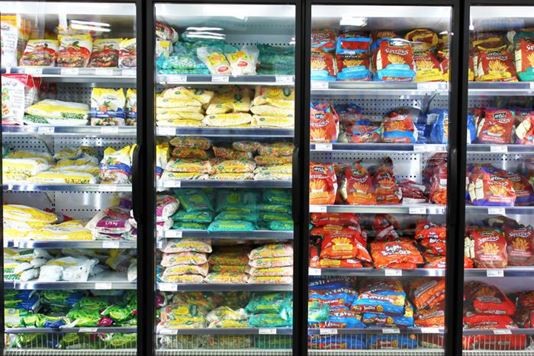
Have you ever wondered which of your everyday ingredients you can and can't freeze? Here's all you need to know.
Each year millions of tonnes of food are wasted, partly because people don’t know it can be frozen. Here are some that you should definitely not throw away but freeze instead, others that can be frozen but are affected by the process, and ones that can’t withstand being frozen and should be eaten fresh.
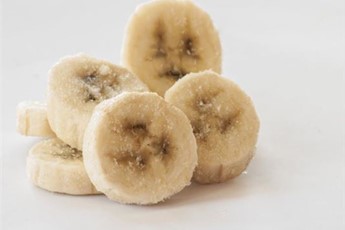
It’s OK to freeze bananas
Because freezing affects the ripening process bananas should be ripe before being frozen. Peel the fruit, cut into slices and freeze on a flat sheet. Once frozen transfer to freezer bags, removing any air before sealing. Remove chunks for shakes and smoothies – there’s no need to defrost first. It’s also fine to freeze bananas in their skin but they don’t last as long in the freezer, the skin turns black (even though the fruit is edible) which can be off-putting, and they’re harder to peel.
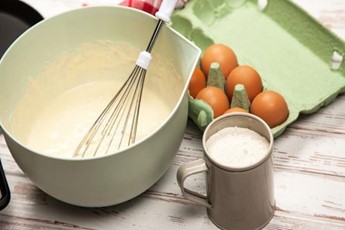
It’s OK to freeze batter
Made too much batter? Don’t discard it – it can be kept in an airtight container in the freezer for up to three months.
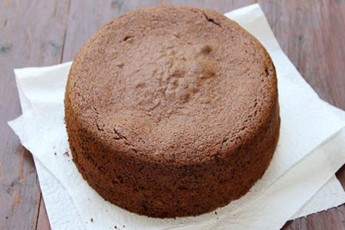
It’s OK to freeze cake and brownies
Cakes freeze well because of their high fat content (low-fat options don’t freeze as effectively). Make sure the cake or brownies are cool, wrap tightly in foil, cling film or in a cake tin, and store in the freezer away from strong-smelling foods for up to three months (up to a year for rich fruit cakes). Allow to thaw before decorating or frosting.
It’s OK to freeze dough and raw pastry
Dough and raw pastry can be frozen if wrapped tightly in plastic wrap. It’s best to do this soon after preparation so it doesn’t dry out. This also applies to dough that contains yeast and has proven and to fresh yeast. Thaw overnight in the fridge.
It’s OK to freeze raw egg white
Just add a sprinkle of salt or sugar to prevent the eggs from turning to rubber and ensure there’s enough space in the container for the eggs to expand slightly when frozen.
It’s OK to freeze fresh pasta
Cooked pasta can turn to mush (unless it’s frozen after being cooked al dente) but tightly-wrapped fresh pasta freezes well for up to two months.
It’s OK to freeze garlic
Although it will lose some of its potent flavour garlic can be frozen either as a whole head or as separate cloves. Freeze while it’s still fresh and before it’s sprouted green shoots.
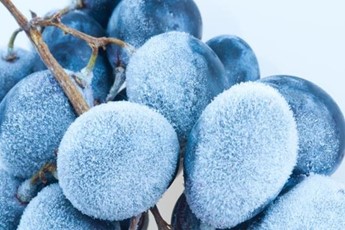
It’s OK to freeze grapes
Here’s a nifty trick for keeping drinks cool without watering them down with melted ice cubes. Freeze grapes and add them to beverages, or simply eat them as a frozen snack.
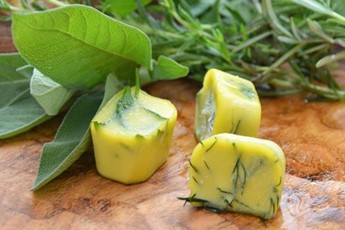
It’s OK to freeze herbs
Here’s a handy hack for freezing fresh herbs and chilli – chop then pop into ice cube trays with olive oil or melted butter. Freeze overnight, remove the cubes and put in a sealed plastic bag ready for cooking when required. Hardier herbs can withstand being plucked from the stem and kept in jars in the freezer.
It’s OK to freeze nuts
It doesn’t matter if they’re raw, roasted or toasted – nuts keep for up to a year in the freezer as long as they’re in a tightly sealed jar. If they smell or taste odd after thawing don’t eat them.
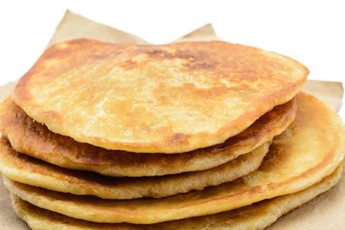
It’s OK to freeze cooked pancakes
Cooked pancakes can also be frozen for a couple of months. To store allow the pancakes to cool down then put greaseproof paper between each one before wrapping in plastic.
It’s OK to freeze scrambled egg
Scrambled eggs are one of the best ways to freeze eggs because the yolk prevents the egg whites from becoming too rubbery. Cook so the eggs are slightly under, allow to cool, then freeze portions in a cupcake tin for no longer than half an hour. Remove and put into individual freezer bags, squeezing out any air before closing. Allow to defrost in the fridge overnight before reheating in the microwave or a frying pan for breakfast.
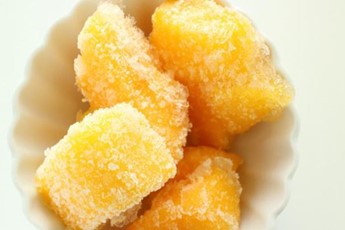
It’s OK to freeze tropical fruits
With a bit of preparation soft tropical fruits such as pineapples, kiwi and mangoes can be successfully frozen for around six months. Peel and slice, removing any discoloured bits; lay the fruit out on paper towels and pat to remove as much moisture as possible; freeze overnight on greaseproof paper on a flat tray covered in plastic wrap; then transfer to freezer bags, squeezing out any air before sealing.
It’s OK to freeze double or whipped cream
Cream that has a high fat content (35% or more) can be successfully frozen, though it’s advisable to pour a little out beforehand as it expands in the freezer and can burst through the packaging.
The jury’s out about cheese
Freezing hard cheese can alter the texture, causing it to crumble and making it harder to grate. Instead grate before freezing. Soft cheeses are delicate and don’t always stand up to the freezing process. However, if the cheese is frozen to be used in cooked sauces or toppings it’s OK.
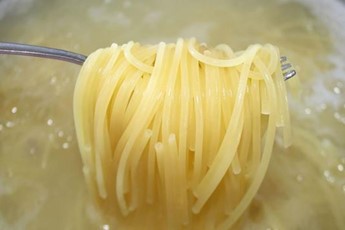
The jury’s out about cooked pasta
Frozen cooked pasta has a tendency to fall apart when reheated. However, if it’s cooked al dente to begin with, then frozen, it’s edible. If you’re planning to make extra for meal at a later date remove some of the pasta you’re cooking before it’s ready to eat, let it cool then freeze it.
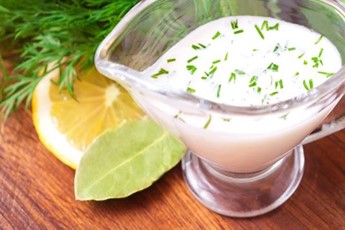
The jury’s out about creamy sauces
Like all dairy, freezing can affect the texture of the product. Eating it won’t give adverse effects but a creamy sauce may split, taste grainy or have an unpleasant aftertaste. However, if the sauce has a roux base it helps to stabilize the cream, and not adding acid (such as lemon juice) or salt to the sauce until you’re ready to serve it will prevent curdling. Lastly, bring to the heat slowly.
The jury’s out about milk
It’s acceptable to freeze milk though it tends to be more successful the higher it is in fat (skimmed milk is most likely to split). Some people don’t like the taste of defrosted milk but it’s fine to use in drinks and cooking. Remove some of the liquid before freezing to avoid the container bursting.
The jury’s out about raw celery, peppers and tomatoes
These vegetables can be frozen but they don’t taste as nice raw after thawing. However, they can be used really effectively as ingredients for dishes such as soups, stews and sauces.
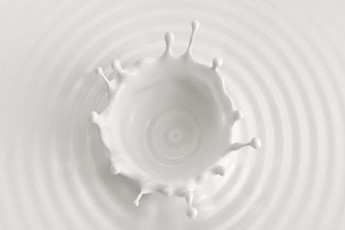
The jury’s out about low fat or single cream
This is because cream separates when defrosted. The same applies to sour cream. It’s not inedible, it just doesn’t look nice. It can be stirred back to its former state or used in cooking, and if the cream is already mixed into a dish (for example in a curry) it’s OK to freeze it.
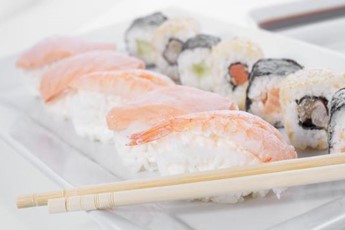
The jury’s out about sushi
It’s possible to eat frozen sushi but it’s not recommended. Nori (seaweed) and cooked rice can become soggy when thawed and raw fish should be eaten at its freshest.
The jury’s out about watermelon
Certain melon varieties such as honeydew freeze well (follow the same instructions as the tropical fruit) but watermelon has a very high water content. There are ways though – try cutting some of the flesh into triangular pieces, insert a lolly stick then freeze for a few hours. It can then be eaten like an ice lolly. Or dice, freeze and add (in its frozen state) to smoothies and drinks.
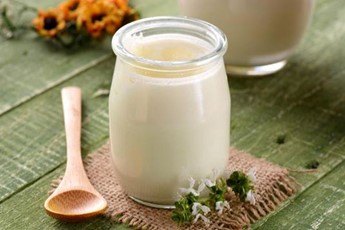
The jury’s out about yoghurt
All dairy products are prone to splitting when they’re frozen though there are a few ways to avoid this (ice cream, for example, has an egg yolk custard base, while commercial emulsifiers such as xanthan gum are used). Fresh yogurt can split on thawing and taste more acidic. The healthy live bacteria may also be destroyed. However, it’s safe to eat so long as you eat it by the use-by date.
It’s NOT OK to freeze boiled eggs
They are most likely to turn rubbery.
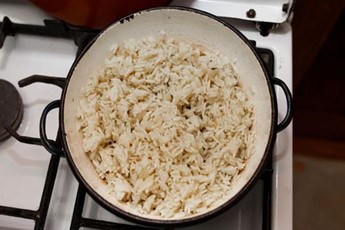
It’s NOT OK to freeze cooked rice
Cooked rice left at room temperature is a breeding ground for Bacillus cereus, a bacterium that causes food poisoning. It’s more risky with takeaway rice because you won’t know how long it’s been left out before reaching you. If you do want to keep rice let it cool quickly (within an hour) then freeze it. When reheating it make sure it’s heated through thoroughly and is piping hot. Even then cooked rice doesn’t keep well and the grains disintegrate easily unless it's been under-cooked initially.
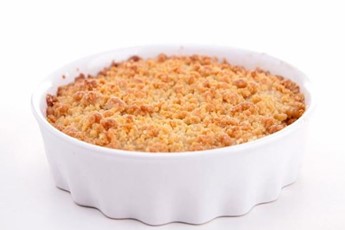
It’s NOT OK to freeze crumbed toppings or coatings
Like fried food the very essence of crumbed topping is the crispiness. This is what adds texture to dishes such as casseroles, crumbles and crumbed fish. Freezing makes crumbs soggy – it’s better to freeze the dish without its topping or coating and add after defrosting.
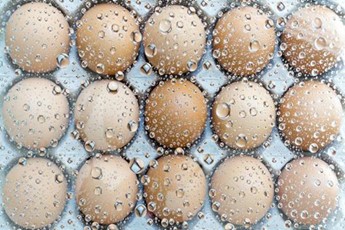
It’s NOT OK to freeze eggs in their shell
Eggs frozen in their shell will explode because liquid expands as it becomes solid.
It’s NOT OK to freeze fried foods
Freezing crispy fried food eradicates its desirable crunchiness. You can re-fry it but this will make it drier and add extra fat.
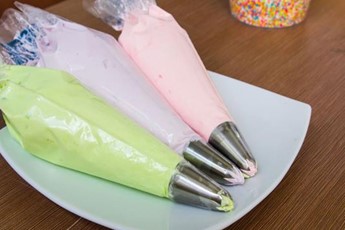
It’s NOT OK to freeze icing/frosting
Icing made with egg whites can separate if frozen then defrosted. This can ruin a cake. Instead freeze the cake then make the icing fresh.
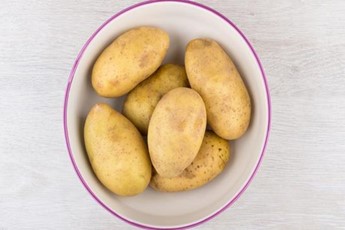
It’s NOT OK to freeze raw potatoes
Potatoes have a high water content. This water freezes, causing ice crystals to form, which affects the taste and texture once thawed. One way around the problem is to par-cook or cook the potatoes before freezing but it’s generally better to avoid. Stored in a cool, dark, dry place potatoes will last up to three months anyway so don’t need to be frozen.
It’s NOT OK to freeze salad produce
Cucumber, lettuce, radishes and salad greens have a high water content, which causes this produce to turn limp and mushy when defrosted.

Key things to remember
Freezing food doesn’t necessarily kill bacteria, which is why it’s important to defrost it in the fridge then re-heat until it’s piping hot. Refreezing thawed food can raise the risk of food poisoning unless it’s been cooked (for example, defrosted lamb which is then cooked in a stew). If you’re wondering why some commercial foods can be frozen that can’t if they're homemade it’s because food additives such as stabilisers and emulsifiers have been used.
Do you have any freezer tips? Let us know in the Comments below.
More features you might like:
How to freeze your excess fruit and vegetables
Comments
Be the first to comment
Do you want to comment on this article? You need to be signed in for this feature
